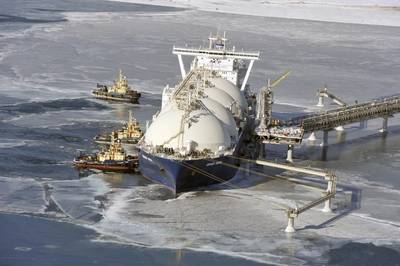Sovcomflot IPO Expected to Price at Low End of Range
Russian shipping company Sovcomflot is guiding investors to expect its initial public offering (IPO) to price at the low end of the marketing range, two bookrunners organizing the transaction said on Tuesday.
The first big stock market float by a Russian company in a couple of years comes as wider investor sentiment towards Moscow has turned negative after the poisoning of Kremlin critic Alexei Navalny, protests in Belarus and renewed clashes in Nagorno-Karabakh.
Russian assets, and the rouble in particular, have been under pressure since August, with the sell-off intensifying as rising coronavirus cases globally and at home add to investor concerns.
Increased volatility has weighed on investor demand in many markets and a number of IPOs have been priced at the low end of the marketing range, including Lithuanian utility Ignitis and German defense supplier Hensoldt.
Other companies, including Germany's Springer Nature and Switzerland's Epic Suisse postponed stock market listings because of weak markets.
Two bookrunners on the Sovcomflot deal said that investors should expect the IPO to price at 105 roubles ($1.34) per share, with books oversubscribed. That compares to an initial marketing range of 105-117 roubles per share.
The first day of trading is slated for Wednesday.
Sovcomflot, a leading player in global oil and liquefied natural gas (LNG) shipping, is expected to be valued at about $3.2 billion after the deal. It is issuing new shares worth up to $550 million and plans to use the proceeds for investments in new assets, decarbonization and deleveraging.
Other Russian companies considering IPOs are Ozon and online cinema ivi. Russia's biggest airline, Aeroflot, plans to raise at least 80 billion roubles ($1 billion) in a secondary share offering.
JP Morgan, VTB Capital, Citi, Bank of America and Sberbank are organizing the Sovcomflot listing.
($1 = 78.3401 roubles)
(Reporting by Olga Popova and Arno Schuetze; Additional reporting by Gleb Stolyarov; Writing by Alexander Marrow and Katya Golubkova; Editing by David Goodman)











